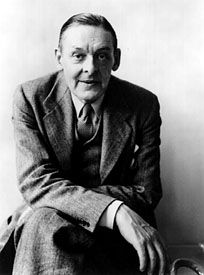Preludes

T.S. Eliot (born September 26, 1888, St. Louis, Missouri, U.S.—died January 4, 1965, London, England) American-English poet, playwright, literary critic, and editor, a leader of the Modernist movement in poetry in such works as The Waste Land (1922) and Four Quartets (1943). Eliot exercised a strong influence on Anglo-American culture from the 1920s until late in the century. His experiments in diction, style, and versification revitalized English poetry, and in a series of critical essays he shattered old orthodoxies and erected new ones. The publication of Four Quartets led to his recognition as the greatest living English poet and man of letters, and in 1948 he was awarded both the Order of Merit and the Nobel Prize for Literature. Eliot advocates a traditionalism in religion, society, and literature that seems at odds with his pioneer activity as a poet. But although the Eliot of Notes towards the Definition of Culture (1948) is an older man than the poet of The Waste Land, it should not be forgotten that for Eliot tradition is a living organism comprising past and present in constant mutual interaction.